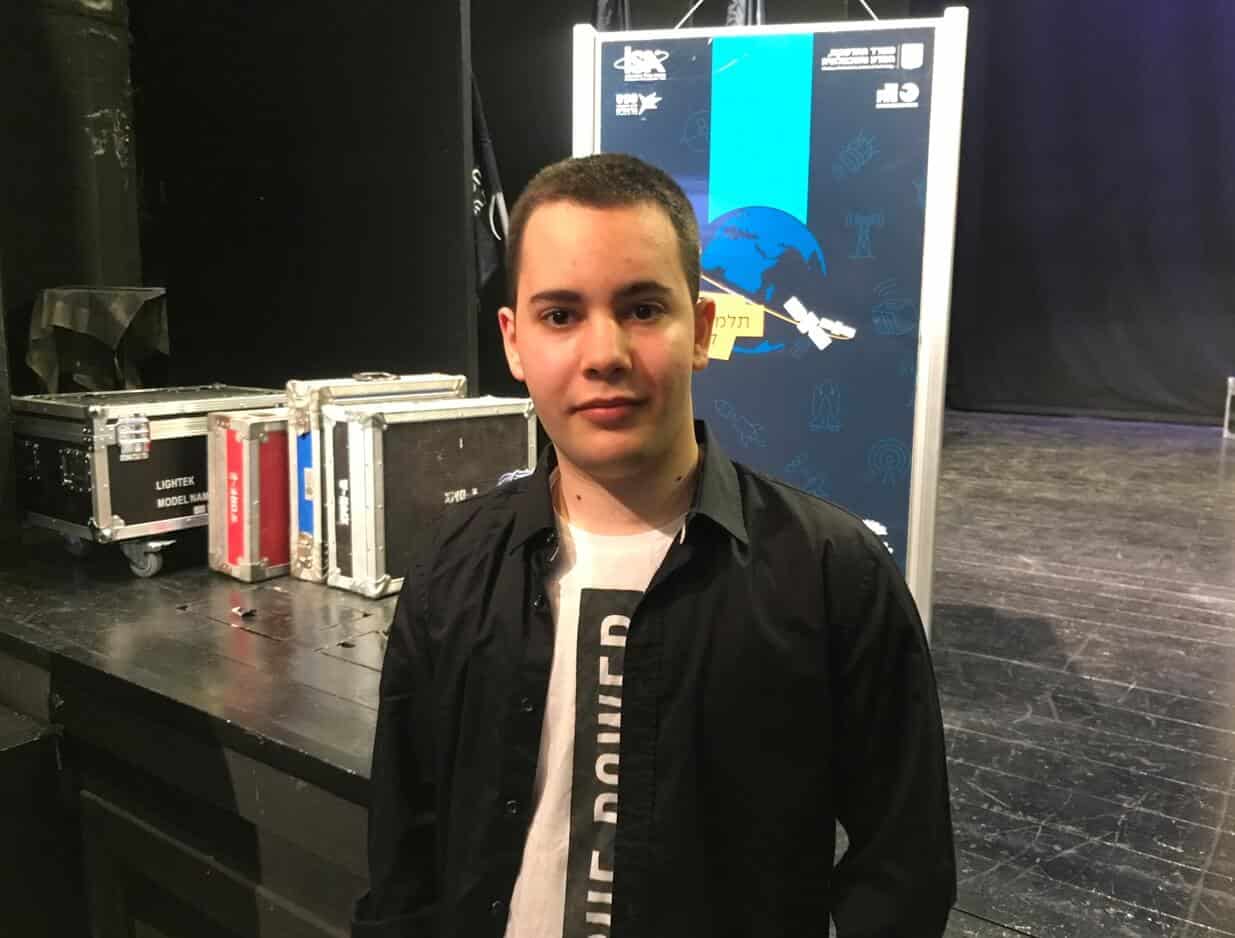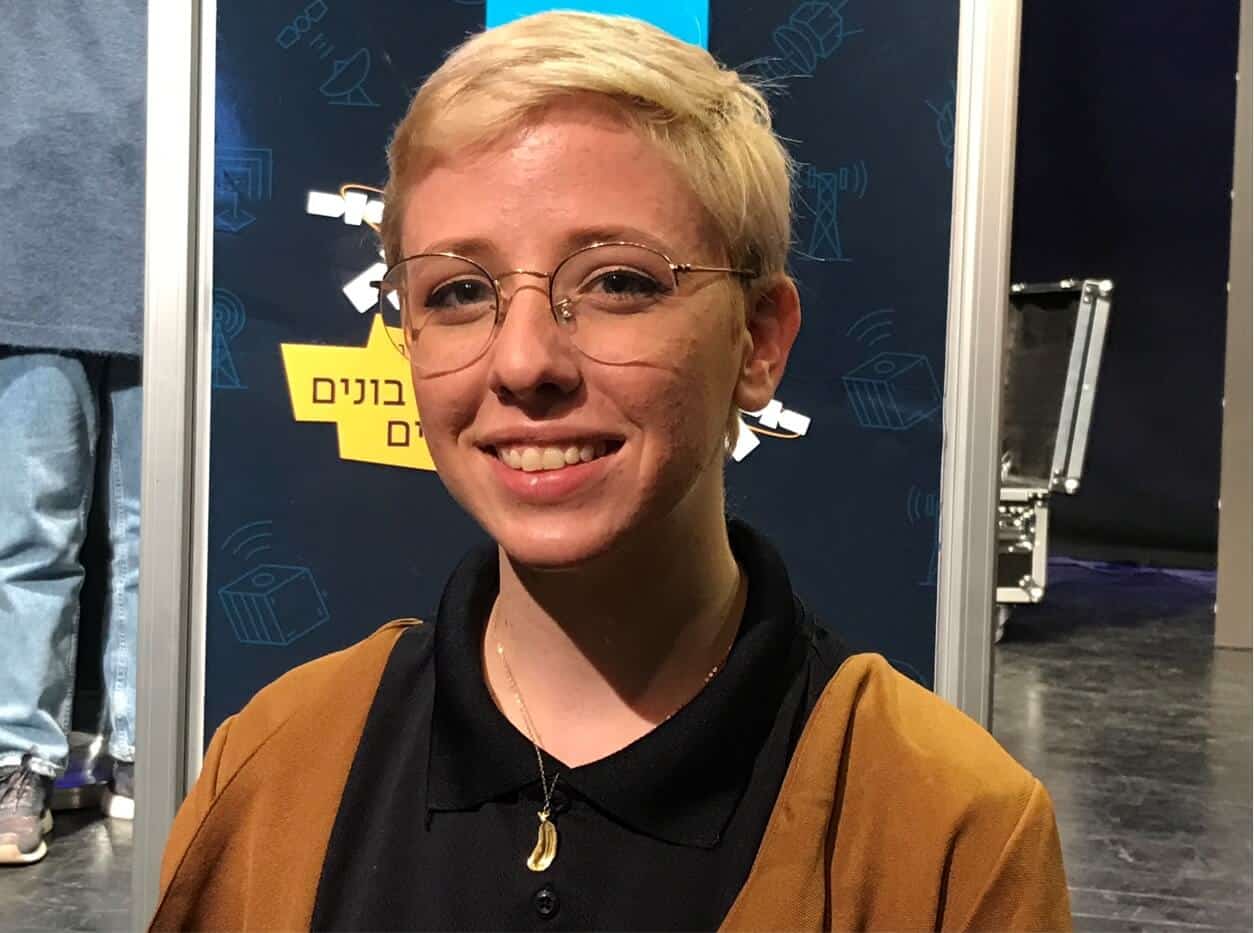About 250 students from eight local authorities participated in the construction of eight satellites that were launched into space on Thursday. We spoke with three of them, and realized that they received training in programming and satellites but also in managing complex projects

About 250 students from eight local authorities participated in the construction of eight satellites that were launched into space on Thursday. We talked to three of them, and realized that they received training in programming and satellites but also in managing complex projects.
Niv Cohen, led the software team at Ma'ale Adumim and is currently a soldier in the Air Force. "They came to our school and started interviewing students. They didn't really explain the project to us. They said it was something to do with satellites, I went to see what it was about. I knew Avi Amitsur who managed the project from earlier because he managed many projects in the city, and I came to the interview.
Have you heard before about Dokifat satellites, that Tevel satellites are their continuation?
"I hadn't heard about them before, but after we started the project, I went to Herzliya and talked to the students who built the Dokifat satellites. Before I entered the project, I was not interested in space, so I had no knowledge on the subject."
"I discovered that the field of space is a wide and interesting field. I mainly connected to the software field, which is the field I focused on as part of the Ma'ale Adumim project. I participated in writing the software that ran on the satellite's operating system, at first we had plans to develop additional software - all kinds of interfaces that we could use to communicate with the satellite. In the end, it was decided that all the satellites would have a uniform interface and it would be managed from Herzliya, but I developed a lot of interesting things."
How is it different from writing normal software?
"very different. When writing software for a satellite, you have to pay attention to every little detail, every little mistake will mean that when the satellite starts operating, there will be no sign of life from it. Therefore, the design took longer than writing the code itself because we had to think about everything."
Are you continuing in the field of space?
I enlisted in the air force but not in the space field.
Niv recommends students who are interested in joining the follow-up project: "I heard that there is going to be a second generation, so I would like to recommend to anyone who is interested that it is worth it. I had the privilege of meeting amazing people, working with experts in the field and opening my horizons. There are subjects I never thought I would learn. It was very interesting. Of course, you need to have the ability to learn the field, and even then, there were many who dropped out during the project. You have to start to know."
By Niv's side was Shalu Saban, a graduate of Ort Aviation High School in Maale Adumim: "The organizers of the project approached the mayors and offered them to participate. In our case, we went to all the schools and interviewed everyone whose major includes physics"
"I was the head of the project, which included software and construction, and I was also responsible for presenting the project to various parties. Participating in the project made me realize that I want to work in the field and also made me realize that I can lead. I'm going to study computer science, maybe one day I'll join the space industry."

Another activist is Omri Dinor who led the Shaar HaNegev High School group. "I served as the manager of the Shaar HaNegev team in the Tevel project, and the only daughter in the group. "
"If they had told me a few years ago that a satellite I built together with my best friends would fly into space, I would not have believed it. It's an amazing program and I feel like it shaped the whole planning experience for me in an outstanding way. I had the opportunity to learn informally about things that I really want to work on later. I am very happy to be here with all my friends. "
Did you have contact with other groups?
"The work with the other groups was mainly in the planning phase. Because it happened during the closures, everything was done by electronic means, mainly Zoom and Discord. We talked until the middle of the night and there were also large meetings where all the students went into Zoom and listened to joint lectures. "
What exactly was your job?
"My role as manager of the Shaar HaNegev team was mainly administrative - to organize the team and make sure that everyone knows what their mission is. In addition, I was on a ground station team, and I have a special certification that allows me to operate the instruments and antennas to communicate with the satellite in space. Throughout the project there was a lot of work on this certification while managing all the other projects, checking that they know what they need to do and if they are getting along or need help. When necessary, I connected the members of my group with those needed in other groups or instructors at the Science Center in Herzliya."
"In the case of the Negev Gate, the project was within the framework of the school. We were in a space major, one part of which was space and the other part was writing final theses in scientific subjects - mechanical engineering, programming, computer science, physics, and there was even one student who did work in chemistry. The project was actually one of the classes. We stayed at school until midnight."
In conclusion, De-Nor says: "I want to say a big thank you to our instructors Ronan Yuval, Ran Vashem, who were with us all along the way and let us work alone and dealt with our craziness. They were amazing. It wouldn't have happened without them."
More of the topic in Hayadan:
- The eight Tavel student satellites were successfully launched and began sending signals
- Eight satellites developed by students from all over the country will be launched into polar orbit tomorrow
- "Dokifat 3 proves that even under the threat of rockets and rockets it is possible to have quality scientific education" update on the success of the launch
- Space is the economic and security locomotive of the future
